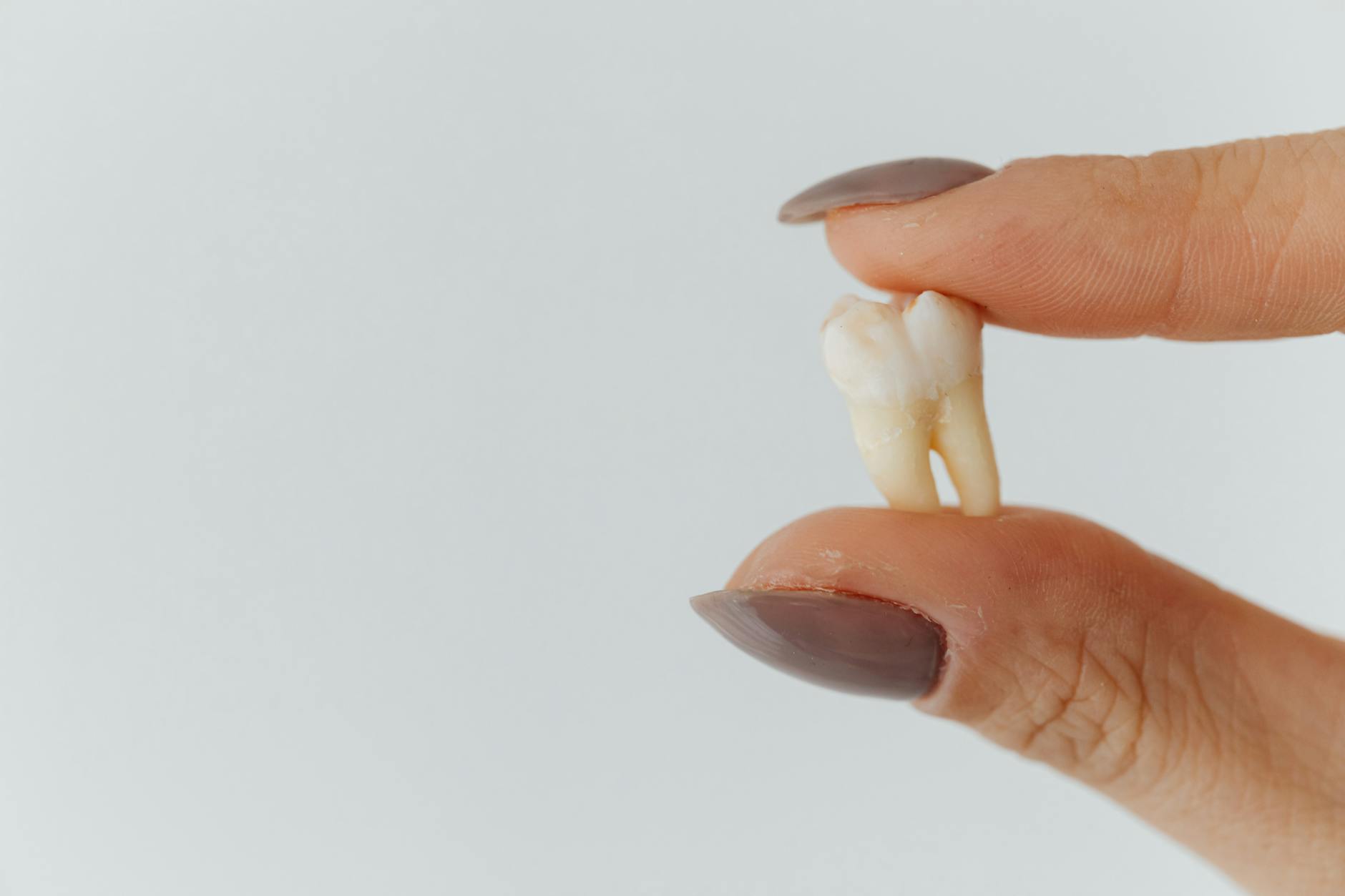
Tooth sensitivity is more common than you might think. It can creep up suddenly and make everyday life uncomfortable. While you may feel a slight twinge occasionally, this discomfort can escalate into pain, turning everyday activities into challenges.
How Sensitivity Affects Your Daily Life
Sensitive teeth can make eating and drinking a daunting task. Whether it’s the sting of a cold drink or the sharp sensation from a hot bite, sensitivity can make everything feel different. What once seemed normal becomes a reminder of discomfort.
Each day brings new hesitations. You may avoid certain foods or drinks. Even something as simple as brushing can seem painful. Tooth sensitivity can alter your routine, making you more aware of every meal and every sip.
Pain That Tells You More Than You Think
Tooth sensitivity isn’t just about the pain. It’s a symptom of a deeper issue. When your teeth are exposed to extreme temperatures or pressure, it’s often a sign that the protective enamel layer is compromised. This exposure can make nerve endings more sensitive.
What may seem like a mild irritation could be your teeth’s way of alerting you to possible damage. Ignoring the issue might lead to more serious dental problems down the line. Sensitivity isn’t a sign to endure—it’s a signal to listen to.
Everyday Habits That Contribute to Tooth Sensitivity
Many of our daily habits contribute to tooth sensitivity. For instance, brushing too hard or using a hard-bristled toothbrush can gradually wear away the enamel. This soft layer that protects your teeth becomes thinner, leaving you vulnerable to temperature changes.
Acidic foods like citrus, soda, and vinegar can further erode enamel, exposing sensitive areas. As enamel weakens, the dentin beneath it becomes more susceptible to stimuli. The result is heightened sensitivity, often becoming more noticeable over time.
The Role of Enamel and How It Affects Sensitivity
Enamel is the tooth’s outermost layer and provides vital protection. It shields your teeth from extreme temperatures and pressure. But when this protective layer is eroded, the nerves inside your teeth become more exposed, leading to discomfort when eating, drinking, or even breathing.
Once enamel is lost, it doesn’t regenerate. Therefore, preventing enamel loss is crucial in maintaining your tooth health. Regular care, along with avoiding damaging habits, can help maintain this essential protective layer.
What Are the Common Causes of Tooth Sensitivity?
Tooth sensitivity can arise from many factors. Poor oral hygiene is one of the leading causes. If you don’t brush or floss regularly, plaque buildup can result in gum disease and enamel loss. Gum recession is another major contributor, as receding gums expose the sensitive root areas of your teeth.
Bruxism, or teeth grinding, can also lead to tooth sensitivity. The grinding process wears away enamel over time, making teeth more vulnerable. Lastly, dental procedures like fillings or bleaching can temporarily increase sensitivity, although it’s often short-lived.
Gum Recession and Its Connection to Sensitivity
When the gums pull away from the teeth, they expose the sensitive roots underneath. This area lacks enamel, and as a result, any external factor—such as cold air or hot beverages—can trigger sharp pain. Receding gums can be caused by poor brushing technique, gum disease, or aging.
Taking steps to protect your gums can prevent further recession. Gentle brushing, regular cleanings, and using toothpaste designed to help with sensitivity can offer relief. If left unchecked, gum recession can worsen, leading to further exposure of sensitive areas.
The Impact of Grinding Your Teeth
If you’ve ever woken up with a sore jaw or teeth that feel sensitive, you may be grinding your teeth at night. Bruxism is a common condition, often triggered by stress or anxiety. The act of grinding wears down enamel and can exacerbate sensitivity, especially in the morning.
While you sleep, the pressure from grinding can be severe, causing irreversible damage to the enamel. If you notice teeth sensitivity that coincides with jaw discomfort, a night guard may help protect your teeth from further damage.
Solutions for Managing Tooth Sensitivity
Fortunately, there are several solutions for managing tooth sensitivity. The first step is to switch to a soft-bristled toothbrush and use a gentle brushing technique. Using desensitizing toothpaste can help block pain signals from the tooth nerves.
Fluoride treatments applied by a dentist can strengthen enamel and reduce sensitivity. Additionally, if sensitivity is linked to gum recession, a dentist may recommend a gum graft or other restorative procedures.
When to See a Dentist About Sensitivity
If sensitivity becomes persistent or intensifies over time, it’s time to see a dentist. While some mild sensitivity is normal, especially after a cleaning or whitening procedure, continuous pain might point to a more significant problem.
A professional can perform a thorough examination and recommend the best course of treatment. Sometimes, sensitivity is a sign of tooth decay, gum disease, or worn fillings. It’s better to address it early before it escalates.
The Importance of Proper Brushing Techniques
Using the right brushing technique is crucial in preventing enamel loss. Brushing too hard or using a brush with stiff bristles can worsen sensitivity. Always opt for a toothbrush with soft bristles and gentle pressure.
By brushing twice a day and incorporating proper techniques, you can preserve your enamel. Avoiding excessive scrubbing or harsh brushing motions can help protect your teeth in the long run.
Is Sensitivity Always a Sign of Severe Problems?
Tooth sensitivity is not always a sign of severe issues. It can often result from temporary causes such as diet or a recent dental procedure. However, if sensitivity persists for more than a few days or weeks, it’s important to seek advice from a dental professional.
Persistent or worsening sensitivity is not something to ignore. By addressing it promptly, you can prevent more serious complications from developing.
Preventive Measures to Protect Your Teeth
Preventive care is key in managing and reducing tooth sensitivity. Practicing good oral hygiene, including brushing and flossing daily, is essential. Avoiding highly acidic foods and drinks will help protect the enamel and reduce sensitivity.
Regular check-ups with your dentist ensure that your teeth stay healthy and any potential problems are caught early. Professional cleanings can help remove plaque buildup and prevent gum disease, which can lead to sensitivity.
Spotting Early Warning Signs of Tooth Sensitivity
Pay attention to the early warning signs of tooth sensitivity. Notice if certain foods or drinks trigger discomfort. If you experience pain with hot, cold, or sweet items, it may indicate sensitivity.
Early intervention can prevent the problem from worsening. Don’t wait for sensitivity to interfere with your daily routine. Speak with a dentist if you suspect something isn’t right.
